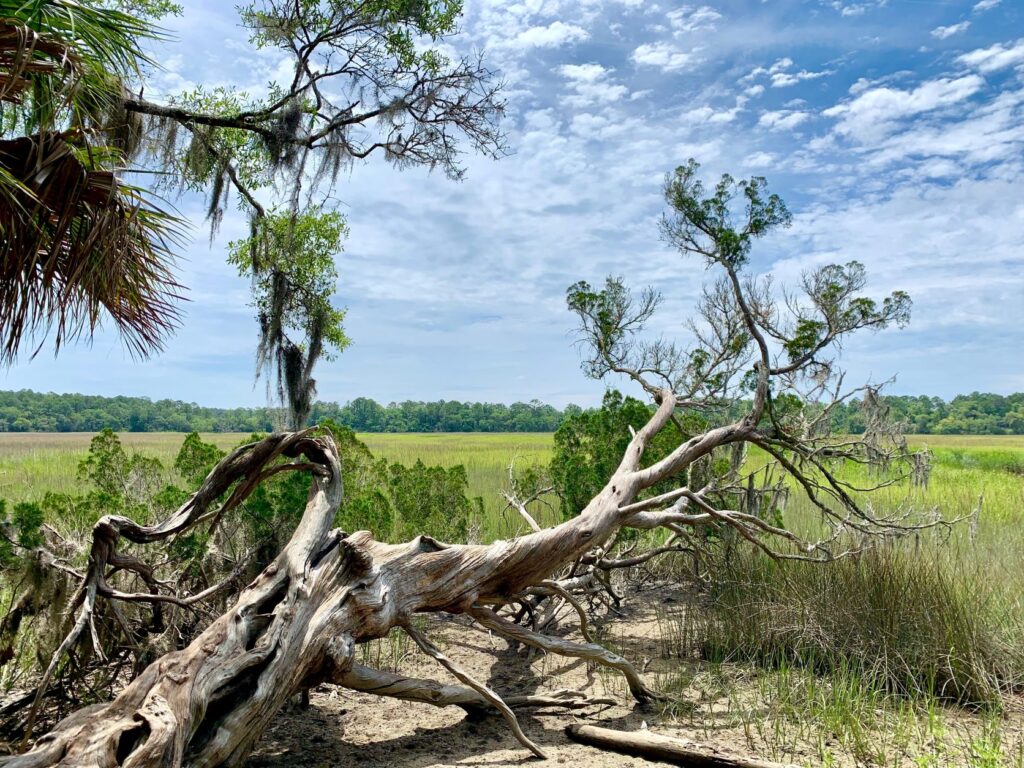
Representative Jesse Petrea has introduced state legislation (HB 748) that will shift the burden of proof to the State when landowners wish to assert ownership rights to coastal marshlands.
Common law public trust doctrine holds that the lands regularly submerged by the ebb and flow of the tide are owned by the State and held in trust for the benefit of the people. In 1981, the Georgia legislature codified this principle in the Protection of Tidewaters Act which establishes the State of Georgia as the owner of the beds of all tidewaters within the State, except where private title can be traced to a valid British Crown or State land grant.
It is appropriately difficult for property owners to successfully produce the documentation needed to trace an unbroken chain of title to a Crown or State grant. Most of these grants date back to as far as 250 years ago when Georgia was a British colony. Among the requirements for proving ownership status, the grants must still exist, be legible, and must specifically convey tidewaters. Most Crown grants were subject to stipulations such as the cultivation of rice, mandating that the property reverts to the Crown if grantees should fail to adhere to the terms.
Currently, marsh-front property owners can petition the State to recognize their ownership of marshlands by submitting supporting documents to the Georgia Department of Law for official verification. HB 748 would place an arbitrary 60-day time limit on the Attorney General to verify the claims. If the Attorney General cannot decide within this short period, the law would consider the claim valid by default putting the onus on the State to prove in court that the petitioner does not own public trust marshland.
Passing this bill would hamper the State’s ability to employ necessary due diligence in evaluating claims affecting public trust lands, thus increasing the likelihood of dubious claims succeeding.
Some might wonder if unleashing a potential land grab of Georgia’s coastal marshlands matters since Crown grant marshlands are covered by the Coastal Marshlands Protection Act (CMPA). It matters if a constituency of private landholders grows large enough to successfully lobby for policy changes that weaken environmental regulations perceived to impinge on their property rights.
But beyond that, there’s another clue as to why it matters in the bill itself, a measure that Mr. Petrea has dubbed the “Coastal Marshlands Restoration Act.” A careful reading of the text reveals a shell game that distracts attention away from the bill’s primary objective to fast-track claims to private ownership of marshlands by linking it to marsh restoration.
There is only one way for a private owner of tidal wetlands to directly profit from marsh preservation. It’s called wetlands mitigation banking, a government-administered program whereby “certified” landowners preserve, restore, enhance, or create wetlands on their own property and sell credits to anyone whose activities damage or destroy wetlands located elsewhere. The US Army Corps of Engineers requires mitigation as compensation for all wetlands destruction they authorize under the Clean Water Act. To fulfill this requirement, those who are granted Corps permits frequently purchase wetlands mitigation-bank credits.
Keep in mind that Georgia’s coastal marshlands are already protected by state law, so there is no public interest justification for making it easier for private individuals to profit from wetlands preservation that enables wetlands destruction elsewhere. The result is a net loss of wetlands. Mitigation only makes sense as a conservation tool when land that would otherwise remain eligible for development is preserved.
The bill emphasizes restoration but it’s unclear what is meant by this or how legitimate the need is. The bill also never explains why opportunists motivated by financial gain from a contrived market in mitigation credits are the people we should entrust with restoring what state law recognizes as “a vital area of the state” that is “essential to maintain the health, safety, and welfare of all the citizens of the state.”
(A future post will delve into the US Army Corps of Engineers' administration of the wetlands mitigation program.)

